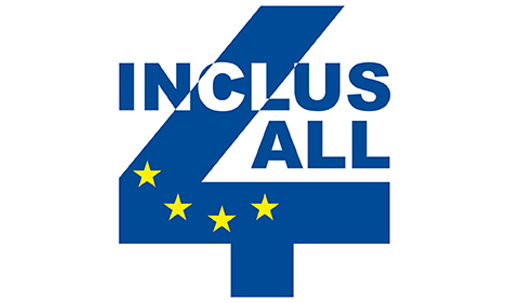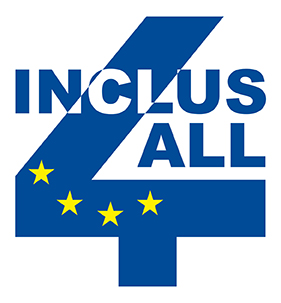3rd Transnational Meeting
Erasmus + Project KA201 "Inclus 4 All"
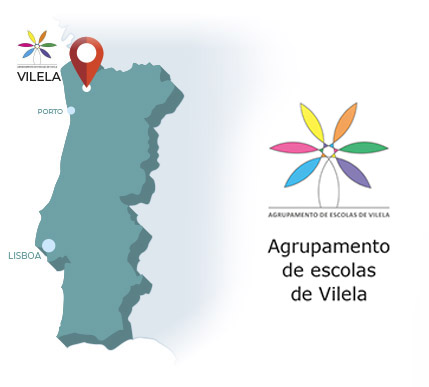
- Vilela, Portugal
Dates:
- January 21, 22 and 23, 2020
Host:
- Vilela Agrupamento Escolas
Meeting participants:
- ADE Team of Creena Pamplona
- Navarra – Education Inclusion Bureau
- Modena Istituto Comprensivo 1
- Vilela Agrupamento Escolas
Vilela - January 2020
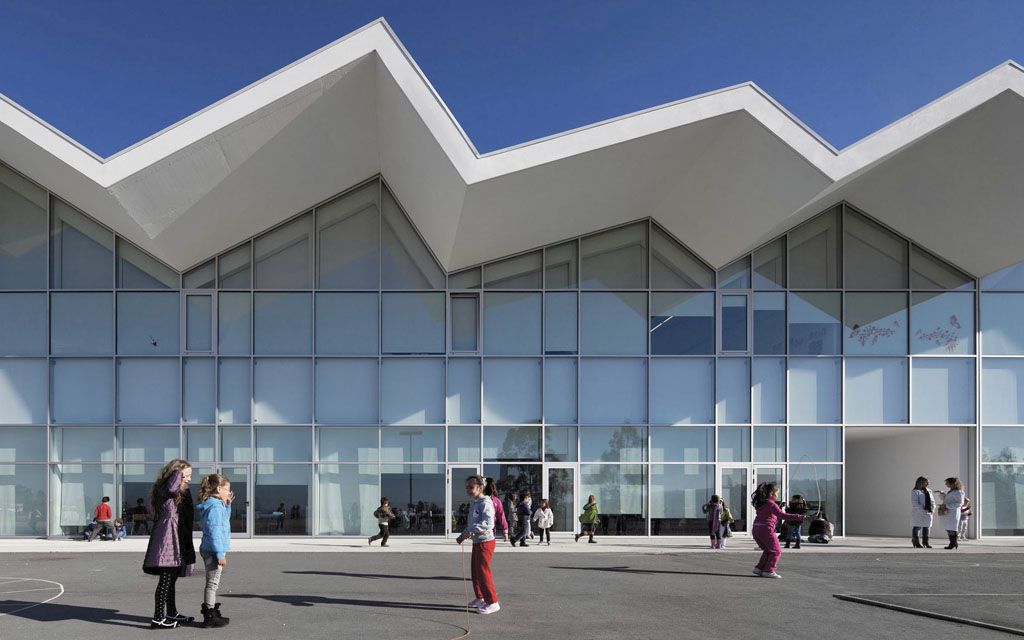
Tuesday January 21st
The KA201 “Inclus 4 all” Project team arrives in the city of Vilela, in the municipality of Paredes, Portugal.
First of all, our hosts take us on a visit to the Vilela Tourist Office and explain to us the importance of the industry in the region. This area has an economy based mainly on the manufacture of wooden furniture such as chairs, tables, cabinets, shelves, etc. run by small local family-type businesses.
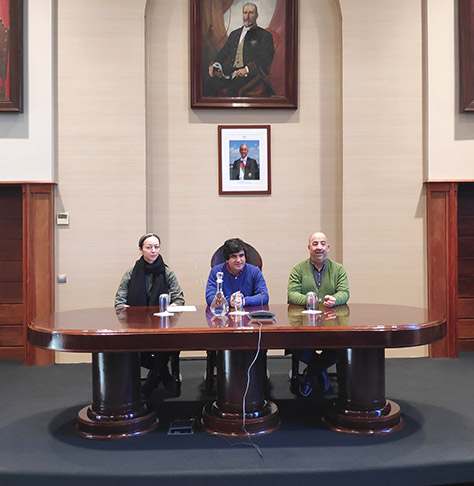
Reception at the Vilela Town Hall
As part of this commitment to inclusion, the Municipality of Paredes has enabled a window called “Balcony of inclusion”, adapted for people with any type of disability. This balcony provides a specialized care service in disability areas, providing information on specific programs, support materials, etc.
Golf as a strategy for inclusion
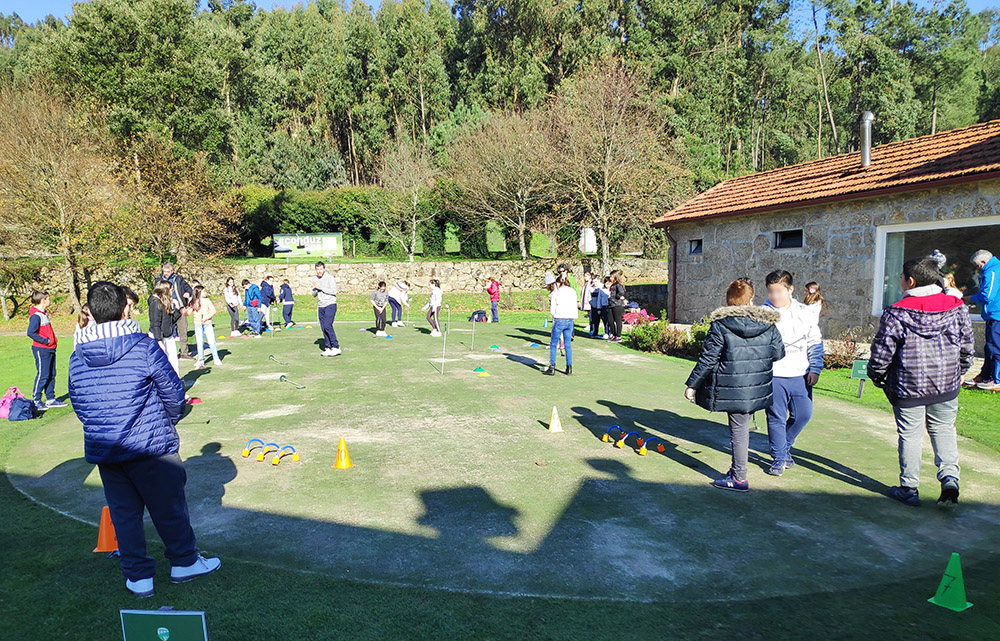
Municipal golf course "The aqueduct"
Next, we visited the Municipal Golf Course “The aqueduct”.
The Municipality of Paredes, in its commitment to diversity and inclusion, provides the necessary support in the scope of the implementation of the project “Golf as a successful promotion strategy” presented by the Vilela School Group. This is an innovative project financed by the Portuguese Institute of Sports and Youth, by the National Program of Sport for All, thanks to the project presented by the three entities involved: the Vilela School Group, the Aquedut Golf Course and the Paredes City Council. The collaboration of the local authority is essential as it provides transportation during school hours.
This program aims to reinforce the self-esteem of students with low academic and school performance and at risk of retention due to behavior problems and is part of a broader project of Grupo Escolar Vilela: Support the Retention Zero project. After one year of experience, it was concluded that the students’ negative achievements went from 8-9 to 2-3, which represented a significant improvement in their academic performance.
To carry out the project, the families sign a commitment and the students must go to the golf course two afternoons a week to receive specific training in golf.
The philosophy of the project is that golf is a difficult sport to master. The first attempts are sure failures, you have to keep trying as instructed by the monitors and thus, little by little, the ball will go where we want to take it.
These golf lessons are interspersed with psychology sessions, with the Vilela School Group psychologist. The psychologist establishes a connection between this sport, which is new for students so they do not dominate, with the inappropriate behaviors they have at school: there are subjects in which, despite having difficulties, they cannot give up. These disciplines, with the commitment, work and support of the teachers, can become true personal victories and successes, as in Golf «putting the ball». Basically, it is about empowering the students, giving them self-confidence and letting them know that they are capable of much more.
In this same project, there is also the option of choosing Archery or Karate.
Growing up with the arts
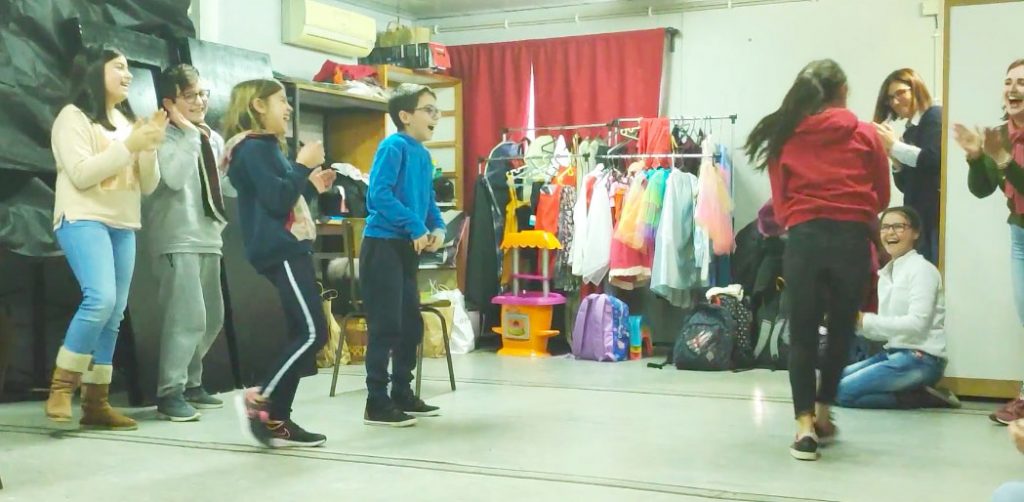
Theatrical improvisation in the "Growing with the arts" program
After this interesting experience, in the afternoon we visited the Vilela Basic and Secondary School where they are developing the program “Growing with the arts.” On this occasion, it is a project that is developed through theater, improvisation and dance. For this, students of different ages are grouped together with students with special educational needs and students who do not have them. Thus, among all, they make a common artistic project.
Afterwards, we visited the Vilela Elementary School and its project “Educate in art”. Art is one of the pillars on which many of the projects of this school group revolve.
Wednesday January 22
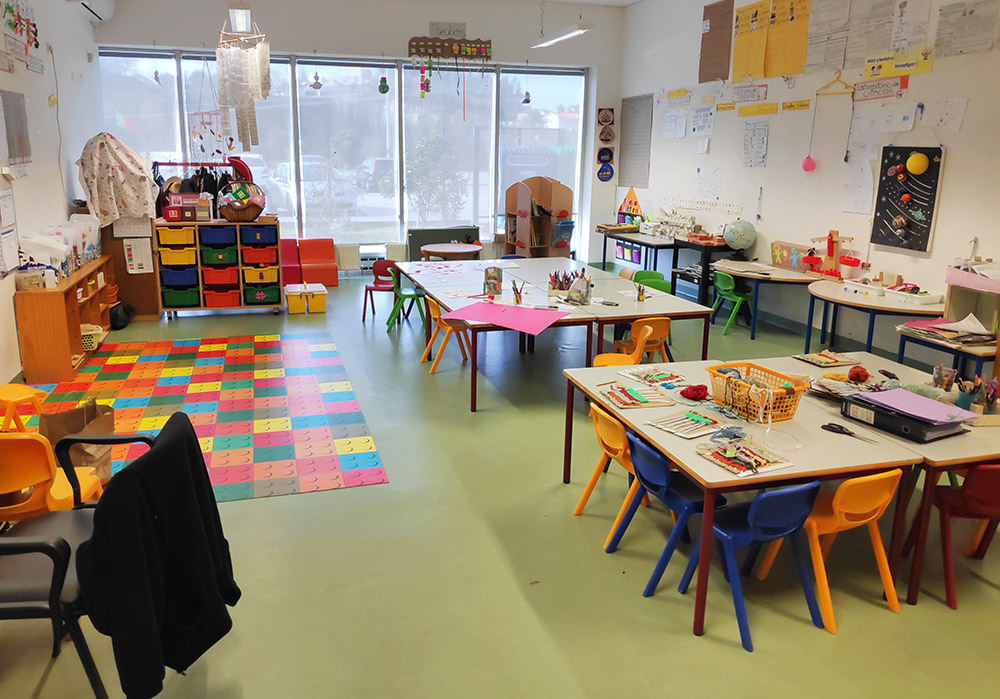
Rebordosa Elementary School
We started the day by visiting the Rebordosa Elementary School.
This school has a specialized unit for students with ASD, Autism Spectrum Disorder. Students with ASD share the classroom with the rest of the students and always have an assistant by their side. The idea is that students with ASD remain in the ordinary classroom as much as possible, in a normal way, except for special occasions that require another situation. When these students, for whatever reason, need a moment of their own and prefer to leave the common space, they can go to the specialized unit. This classroom is a very quiet environment, a refuge island for when they need it, to calm down and where they can do a series of activities such as music, reading, rehabilitation, etc.
In this specialized classroom the maximum number of people is six and they can stay in it for as long as they need trying to make it as little as possible so that inclusion is real.
Our next visit is to the school Library. The peculiar characteristic of the libraries of this school group is that they are municipal libraries open to the entire population.
These libraries honor the tradition of furniture manufacturing in the area and are equipped with wooden furniture adapted to every need, age and moment of the users. They are very beautiful, practical and warm furniture that creates very pleasant spaces without the abuse of plastic furniture that is usually seen in public spaces.
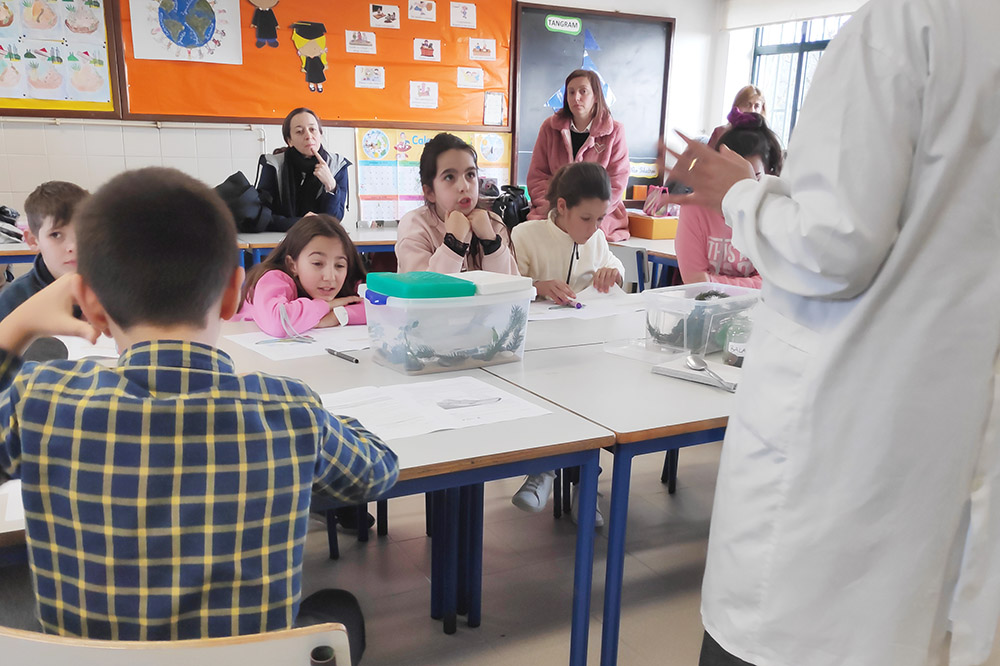
Science workshop "The water cycle"
Later, we visited the Primary School in Serriña. One of the qualities of this School Group is the interaction and relationship between the primary and secondary teachers. As an example of this interaction, we were able to participate in a session of the “First Steps in Science” project led by a secondary school teacher, under the theme of the Water Cycle.
New educational laws
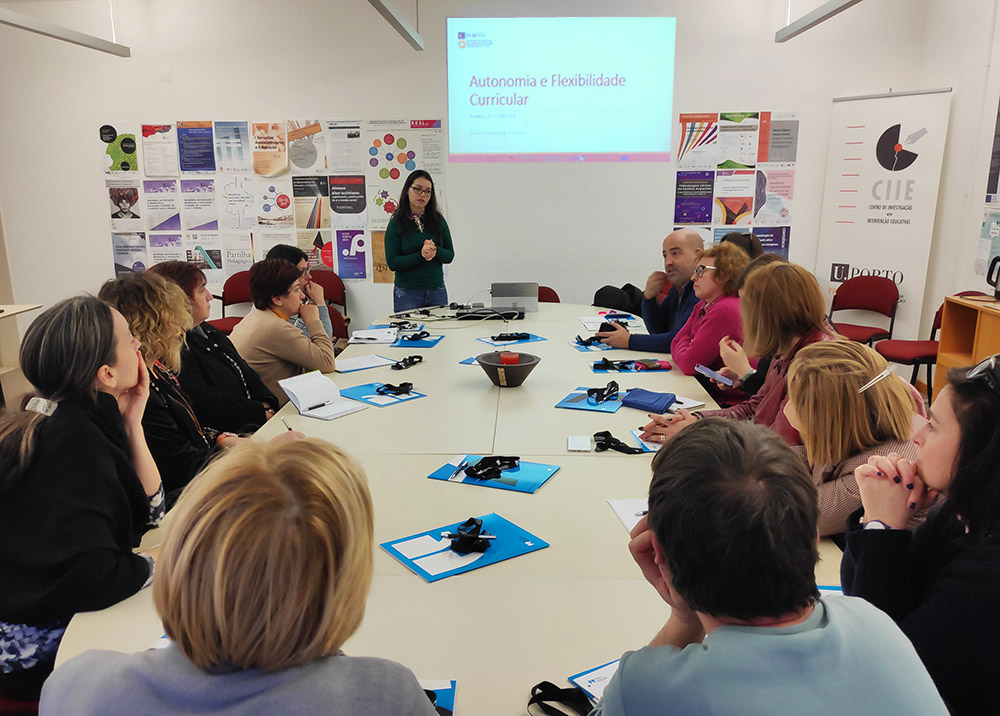
Information session at the Faculty of Psychology of the University of Porto with Professor Daniela Ferreira
At the end of the afternoon, we met at the Faculty of Psychology of the University of Porto with Professor Daniela Ferreira from the team of Professor Ariana Cosme, who is one of the people responsible for advising the Portuguese government on the implementation of the laws. education related to inclusion.
Professor Ariana Cosme’s team explained Decree Law No. 54/2018 on Inclusive Education and Decree Law No. 55/2018 on Curricular Flexibility.
The main points of Decree Law 54/2018 on Inclusive Education are the following:
- Student categorization systems, including categories of students with special educational needs, have been abandoned.
- The model of special legislation for special students has been set aside, establishing a continuum of response for each and every student.
- The focus is on educational responses rather than categories of students.
- The educational measures will be of three types:
-
- Universal. For all students.
- Selective. Temporary, for students who, for a moment or a specific situation, need a different approach.
- Additional. Very specific and specific for students with a disability or a special and specific socio-disadvantaged family situation.
The main points of Decree Law 55/2018 on Curricular Flexibility are the following:
- Each center can decide between 0-25% of the educational curriculum within the center autonomy. Each center decides what to do, how and with what materials, resources, etc. Sometimes, through a report approved by the Ministry of Education, this flexibility can reach 100%.
The colleagues from Italy commented that in Italy, each center has a curricular flexibility that can reach 33%.
In Spain this flexibility is 0, nothing can be changed in the autonomous educational curriculum.
Assessment system in Portugal
In addition to these Decrees, we were informed about the evaluation system used in Portugal.
The main points are the following:
- Up to 4th grade there are no numerical grades. Teachers talk with families about the development of girls and boys, focusing on their interests, abilities, needs, etc.
- From 5th grade to 4th year of Secondary education, a qualitative assessment is made through personalized quarterly reports.
- In High school, the quantitative assessment appears, on a scale of 1 to 20.
In this way, the Portuguese assessment is centered on the person and on their development and potential. In this way, a truly formative evaluation is achieved
Thursday 23 January
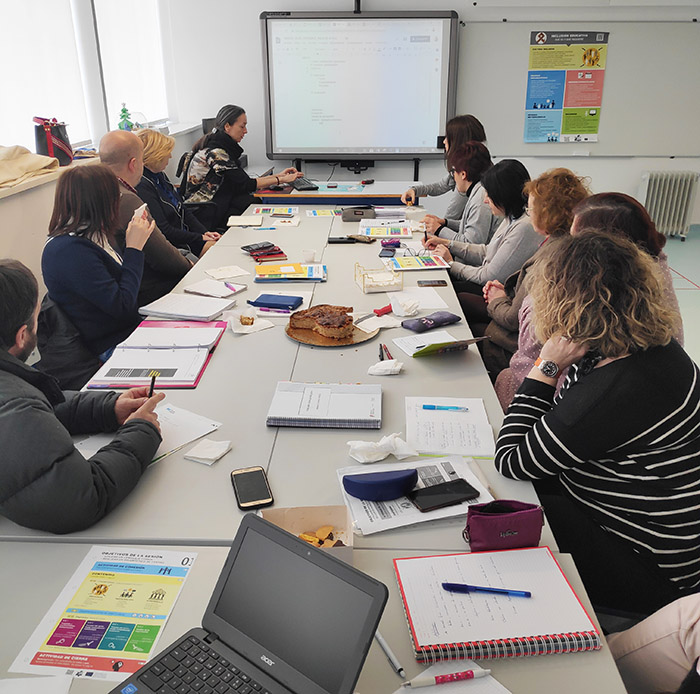
Meeting of the group "Inclus 4 all"
The last day is dedicated to the meeting to coordinate and share the work carried out by the “Inclus 4 all” group to date. In this same meeting we review the pending work until the next meeting that will be at the end of this year.
Italy presented the report that it has been preparing on the current situation of inclusive education in the three countries that make up this consortium.
In this report, data was presented on the following matters:
- Investment grade of each country per student.
- Degree of school dropout and school failure in each country.
- Significant curricular differences between countries to address inclusion, etc.
Portugal presented the internal document for its implementation in the Vilela School Group of Decree Law 54/2018, within the scope of Inclusive Education and all that it implies. It is a relatively long text that the Vilela School Group summarized and on which it based its work to facilitate the implementation of said Decree.
Pamplona, the Bureau of Inclusion Programs and CREENA, presented a draft and possible model of files to prepare the Methodological Guide, which all partners like and is unanimously approved.
They also present the schedule and work planning.
This meeting was attended by the Head of the Inclusion, Equality and Coexistence Service, Mª José Cortés Itarte in support of the Program and to learn first-hand about the state regulations that govern other countries in attention to diversity in an inclusive manner.
All the partners of the Erasmus + Program “Inclus 4 all” will continue working on our project and we will meet again in Barcelona at the end of this year 2020.
ERASMUS+ KA201
- CREENA - Calle Tajonar 14, 31006 Pamplona, Navarra
- +34 848 43 12 30
- mlopezgi@educacion.navarra.es
